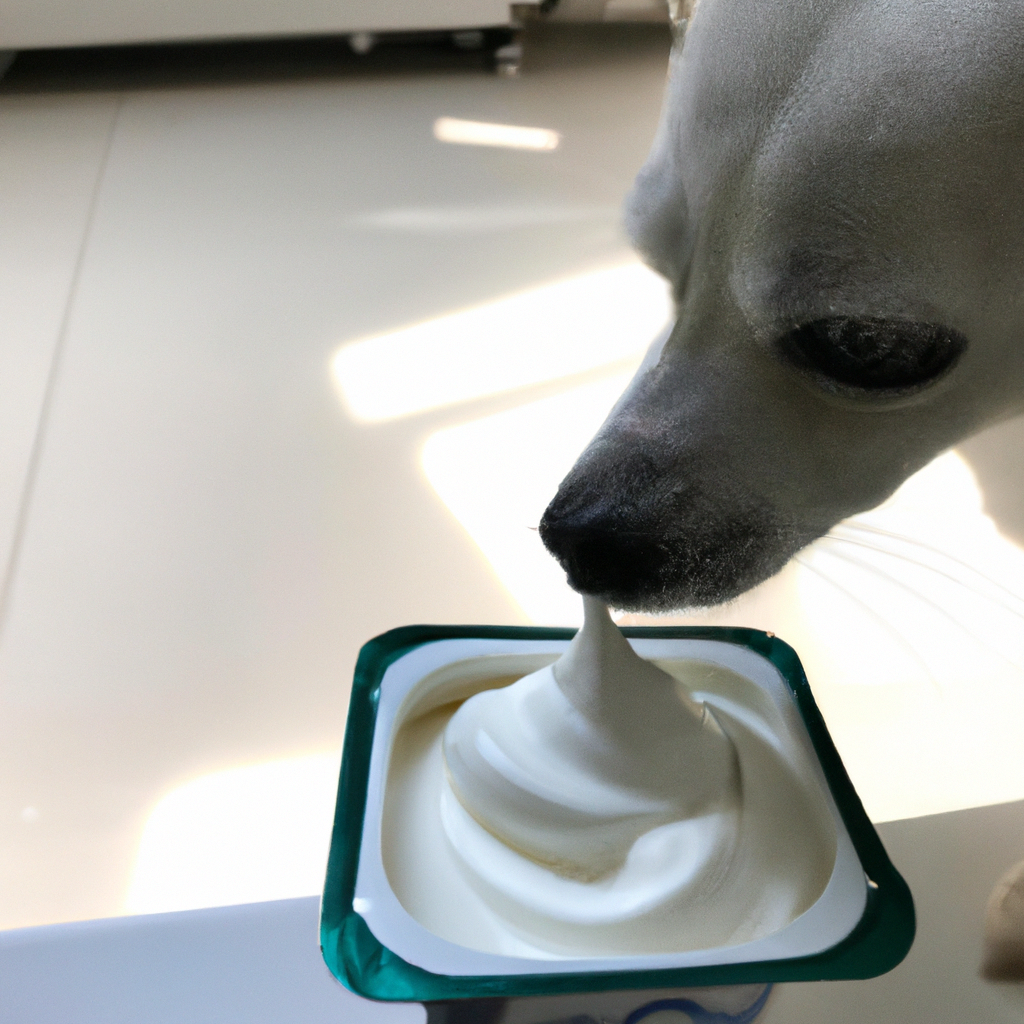Can dogs have sour cream
We all love our four-legged friends, and many of us want to share our favorite foods with them. One food that is often a favorite among humans is sour cream. So, can dogs have sour cream?
The answer is yes, but it should be given in moderation and in the right way. In this article, we will discuss the benefits of giving sour cream to your pup, the risks associated with it, and how to feed it in a safe and healthy way. We will also discuss the different types of sour cream available and the pros and cons of each.
Should I Avoid Feeding My Dog Sour Cream?
No, you don’t need to avoid feeding your dog sour cream. In fact, it can be a great source of healthy fats, protein, and calcium, as long as you don’t overdo it. Just remember, it’s best to feed your dog low-fat sour cream, and you should only give them small amounts, as too much fat can lead to digestive upset. It’s also important to make sure the sour cream doesn’t contain any added sugar or preservatives.
Is Sour Cream Safe for Dogs to Eat?
Yes, it is safe for dogs to eat sour cream in moderation. It is a good source of protein and calcium for your pup and can make a tasty addition to their diet. However, it should be given in small amounts as an occasional treat.
Sour cream is high in fat, so too much can cause your dog to gain weight. It may also cause gastrointestinal upset in some dogs, so it’s best to introduce it in small amounts first. Additionally, it should never be used to replace other foods in your dog’s diet.
If you decide to give your dog sour cream, make sure it is plain and unsweetened. Some flavored sour creams contain added sugar and other ingredients which can be harmful to your pup. In conclusion, sour cream can be a safe and tasty treat for your pup in moderation. Just make sure to give it in small amounts and opt for plain, unsweetened varieties.
Is It OK to Give a Dog a Little Bit of Sour Cream?
Giving your dog a little bit of sour cream can be okay, but it’s important to remember that moderation is key. Sour cream can be high in fat, so too much of it can be bad for your pup. Too much fat can lead to digestive issues, weight gain, and even pancreatitis.
In addition, sour cream can contain ingredients that dogs should not eat, such as garlic and onions, which can be toxic to them. It’s best to check the ingredients list on the sour cream container before giving any to your dog.
If you decide to give your dog a bit of sour cream, make sure to do so in moderation. A small spoonful or two is usually enough. If your dog likes it, you can give it to them occasionally as a treat.
Just make sure to keep an eye on them if they eat it, as some dogs can be sensitive to dairy products. In general, it’s best to stick to dog-safe treats, such as small pieces of cooked meat, fruits, and vegetables. This way, you can rest assured that your pup is getting the nutrition they need while also enjoying a delicious treat.
Can Sour Cream Help Soothe a Dog’s Upset Stomach?
Yes, sour cream can actually help soothe a dog’s upset stomach! Dogs have sensitive digestive systems, so something as simple as adding a tablespoon of sour cream to your pup’s food can help relieve some of the stomachs upset.
The lactic acid in the sour cream helps to soothe an inflamed stomach, and the fat content helps to coat the stomach and intestines, providing relief from nausea and cramps. It’s important to note that sour cream should not be given as a regular food supplement – it should only be used occasionally and in addition to a balanced diet. As with any dietary change, it’s best to talk to your vet before giving your pup any new treats or food supplements.
What Are the Health Benefits of Feeding My Dog Sour Cream?
Feeding your pup sour cream can be a great way to give them a tasty treat and boost their health! Here are just some of the health benefits it can provide:
- Protein: Sour cream is a good source of protein, which helps your pup’s muscles and bones stay strong and healthy. It also helps keep their coat looking glossy and shiny.
- Calcium: Sour cream is rich in calcium, which helps strengthen your dog’s bones. It’s also important for controlling nerve and muscle function.
- Vitamin B12: Vitamin B12 helps to keep your pup’s nervous system healthy and functioning properly. It also helps with red blood cell production.
- Vitamin A: Vitamin A helps keep your pup’s eyesight sharp and their coat looking healthy.
- Folate: Folate helps to break down proteins and fats for energy, as well as helping to build and repair DNA. If you’re looking for a tasty treat to give your pup that also has some added health benefits, then sour cream is a great choice!
Is It Safe to Give My Dog Sour Cream as a Topping on Food?
No, it is not safe to give your dog sour cream as a topping on food. While it might seem like a safe, tasty treat, sour cream is high in fat content and can cause digestive issues for your pup.
It can also lead to weight gain, which can be especially dangerous for dogs that are already overweight. Additionally, sour cream is made with dairy, which some dogs are sensitive to, and can lead to an upset stomach.
If you want to give your dog a special topping on their food, look for healthier options that are made specifically for dogs. You could try a low-fat yogurt or a sprinkle of nutritional yeast. You can also find dog-friendly toppings like freeze-dried meats and fruits that are sure to make your pup’s meal extra special.
What Are the Potential Risks of Feeding My Dog Sour Cream?
Feeding your pup sour cream can be a tasty treat, but it’s important to be aware of the potential risks associated with it. Firstly, sour cream is high in fat, so it’s best to feed your pup small amounts in moderation.
Eating too much fat can lead to pancreatitis, a potentially life-threatening condition. It can also cause your pup to gain weight, which can lead to other health issues like diabetes. Sour cream also contains lactose, a type of sugar that many dogs can’t digest properly.
If your pup eats too much sour cream, it may experience digestive issues like bloating, gas, and diarrhea. Finally, sour cream can contain added ingredients like garlic, onion, and chives, which can be toxic to your pup.
Be sure to check the label to make sure the sour cream doesn’t contain any of these ingredients. Overall, feeding your pup sour cream can be a tasty treat, but it’s important to be aware of the potential risks. Be sure to only feed your pup small amounts in moderation, and check the label for any potentially harmful ingredients.
What Are Some Creative Ways to Use Sour Cream to Make Homemade Dog Treats?
Sour cream is a great way to make homemade dog treats with a delicious twist! Here are some creative ideas you can use to make your pup’s tail wag:
- Sour Cream and Apple Dog Treats – Mix together a cup of sour cream, a cup of oat flour, 1/2 a cup of applesauce, and 1/4 cup of shredded apple. Roll the mixture into small balls and bake at 350 degrees for 10 minutes.
- Sour Cream and Peanut Butter Bites – Mix together a cup of sour cream, 1/2 cup of creamy peanut butter, 1/4 cup of honey, and 1/4 cup of whole wheat flour. Roll the mixture into small balls, place them on a baking sheet, and bake at 350 degrees for 15 minutes.
- Sour Cream and Banana Dog Treats – Mash together a ripe banana, a cup of sour cream, and 1/2 cup of rolled oats. Roll the mixture into small balls, flatten them out slightly, and bake at 350 degrees for 15 minutes. These are just a few of the many creative ways to use sour cream to make homemade dog treats. With these recipes, your pup will be sure to enjoy a tasty and nutritious snack that’s sure to make its tail wag!
In conclusion, while it is possible for dogs to eat sour cream, it is not recommended due to the potential health risks. Sour cream is high in fat, which can be difficult for dogs to digest and can lead to digestive issues and weight gain. If you do choose to give your dog sour cream, it should be given in very small amounts, and only as an occasional treat.




